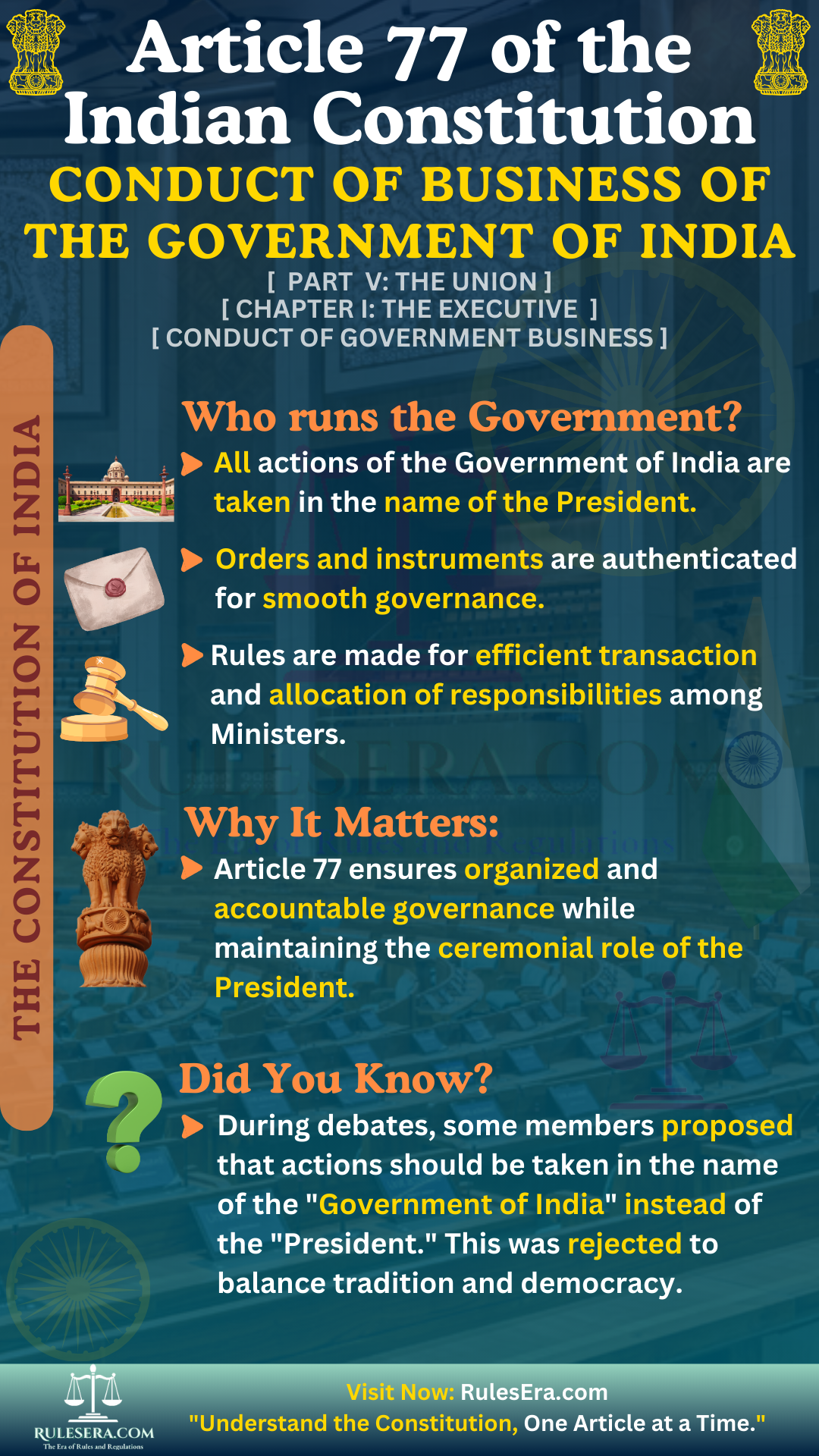Part V: The Union
Chapter I: The Executive
Article 77: Conduct of Business of the Government of India

--- Original Article ---
(1) All executive action of the Government of India shall be expressed to be taken in the name of the President.
(2) Orders and other instruments made and executed in the name of the President shall be authenticated in such manner as may be specified in rules made by the President, and the validity of such orders or instruments shall not be called into question based on whether it was personally executed by the President.
(3) The President shall make rules for the more convenient transaction of the business of the Government of India and for the allocation of business among Ministers.
Explanations
Article 77 of the Constitution mandates that all executive actions taken by the Government of India must be done in the name of the President. The Article outlines protocols for how such actions should be authenticated and assigns responsibilities among Ministers, ensuring efficient administration and accountability within the government.
Clause Headings and Explanation
- Clause (1): Executive Actions in the Name of the President
This clause requires that all executive actions by the Government of India be expressed in the name of the President, emphasizing the President's symbolic role as the head of the executive branch, while real power rests with the Council of Ministers. - Clause (2): Authentication of Orders and Instruments
This clause specifies that orders or instruments made in the name of the President must follow the rules set by the President for authentication. Once authenticated, the validity of these orders cannot be questioned, ensuring smooth execution of the government’s functions. - Clause (3): Rules for Business Transaction and Allocation
The President is empowered to make rules for efficient transaction of business and allocate responsibilities among Ministers, ensuring organized governance.
Amendments
There have been no direct amendments to Article 77, but the rules made under it, such as the Government of India (Allocation of Business) Rules, have evolved to meet changing administrative needs.
Real-Life Example
A typical example of Article 77 in action is seen in Cabinet decisions. For instance, national security directives issued by the Ministry of Home Affairs are formally expressed in the name of the President, authenticated by designated officials, and carry legal validity without requiring the President’s personal involvement.
Historical Significance
Article 77 mirrors the British system, where executive actions were conducted in the name of the monarch. This provision in the Indian Constitution retains the ceremonial role of the President while placing executive authority with the elected government, reflecting the transition to a democratic system.
References
- Constitution of India, Article 77
- Government of India (Allocation of Business) Rules, 1961
- Basu, D.D. "Commentary on the Constitution of India"
- Ministry of Law and Justice, Government of India
Legislative History:
Article 77 was incorporated into the Indian Constitution on January 7, 1949 as part of Article 64 of the Drafted Constitution.
Debates and Deliberations
During the Constituent Assembly debates, Professor K.T. Shah proposed amendments to replace references to the "President" with the "Government of India" in Article 77. Shah argued that executive actions should be expressed in the name of the government, avoiding potential political affiliations for the President. His proposals were ultimately rejected, maintaining the President's ceremonial role in executive actions, as it reinforces the symbolic association between the head of state and all government actions.